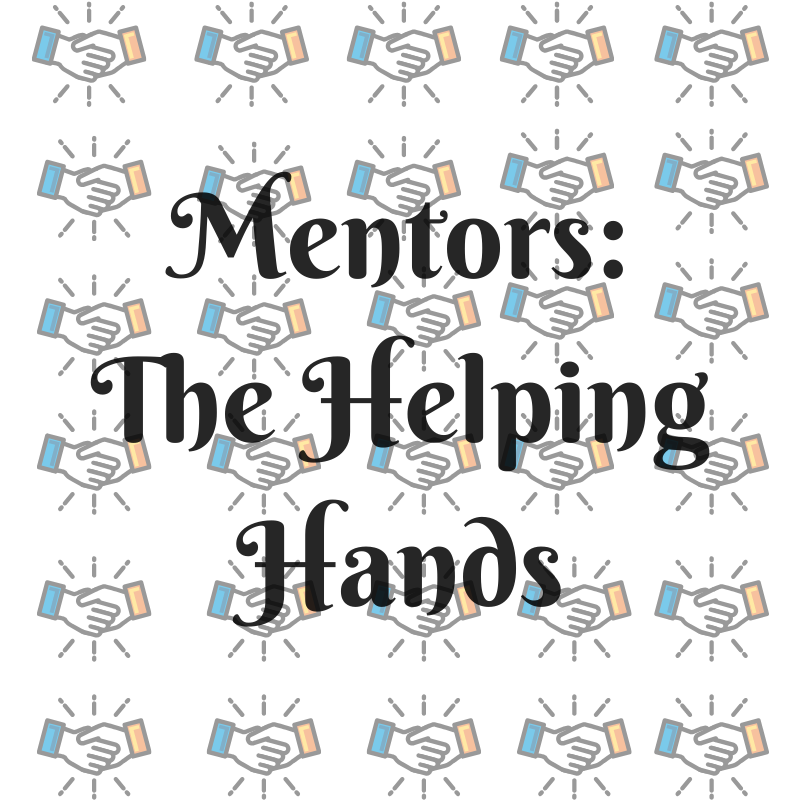Mentors: The Helping Hands
- Briana Gonzalez
- May 7, 2020
- 3 min read
Updated: Sep 9, 2022

Dumbledore. The Giver. Merlin. Haymitch Abernathy. Nicholas Cage in the Sorcerer's Apprentice. Phil the Satyr in Disney’s Hercules. What do these names have in common? Well, aside from belonging to somewhat gruff older fellas with scraggly beards, they are also the names of some of the most beloved mentor characters in literary history.
Sometimes it’s easy to get caught up in all the glory and epic battling that a hero’s journey entails, and forget the road that led to the intense, climactic moments in the first place. However, most of us can agree that without the mentor, there would be no hero at all!
A mentor is a person, usually an older, seasoned person, who guides the hero onto the path to fulfilling their destiny. The mentor helps the protagonist out of their ordinary life, and often helps them hone their special heroic skills or find their inner-special-goodness-trait. Think of our old pal, Dumbledore, for example. Dumbledore embodies a lot of the traits one thinks about when imagining a mentor: He’s old, wise, and a little zany. His personal experiences with the Horcruxes gives Harry the knowledge he needs to defeat Voldemort, and his kindness helps Harry feel supported and at home in the wizarding world. Dumbledore is a leader for Harry to look up to.
However, just as perfect heroes can be a serious snooze-fest, perfect mentors are hardly ever good or memorable ones. Again, think back to Dumbledore: Although he stood for Voldemort’s defeat, he had a dark past - one in which he himself advocated for some of Voldemort’s key values, including world domination by wizards over muggles. For all that Dumbledore tried to protect Harry, he could also be distant and uncommunicative, leaving Harry feeling helpless and insecure. Not to mention that the wealth of things Dumbledore didn’t tell Harry should have its own vault at Gringotts.
When writing a mentor, it’s important to remember that they were once in the hero’s shoes. What else would have afforded the mentor their mentor rights but experience? What’s more, oftentimes they were once in the hero’s shoes and failed in some aspect. After all those who can’t do, teach, right?
Think of Haymitch here: Sure, he won the Hunger Games. But he failed at Katniss’ ultimate mission, which is to be free of the Capitol. How is the mentor haunted by their own past? For Haymitch, the horrors of The Games drove him to alcoholism just to cope with his trauma. This leads him to be jaded and at times quite unfair to Katniss, pushing her to suffer more and more for the sake of her mission - at first, to kill 23 of her peers. Then, later, to become the heart of a revolution, putting her own life and the lives of everyone she loves in jeopardy.
How does your mentor’s commitment to doing the “right thing” affect the hero?
Not to say that your mentor couldn’t be loving and nurturing; almost all mentors develop a very close, even parental bond with the protagonist at some point. To get at the heart of this bond, think about the mentor's personality and teaching style. Are they the tutor-type or more a hands-on teacher? Are they forthcoming about each lesson or do they Mr. Miyagi the heck out of it?
It's also important to consider the mentor's role in society. Are they well-respected or a social pariah? What does this mean for the protagonist? Are they ashamed of their teacher or would they defend them with their dying breath? Playing around with your mentor and their own character development through interaction with the hero is a key element of making a reader fall for your characters! After all, the hero’s victory would be the mentor’s victory, no?
What character is your dream mentor? In your story, how does the mentor inspire the protagonist to become a hero? Tell us in the comment section below!
About the author: I'm Briana Gonzalez, word nerd and card-carrying theatre kid. Writing is just a more accessible form of talking, so it's no wonder I can't stop doing it. Check out my lit blog on Instagram @what_that_book_do!
.png)



Comments